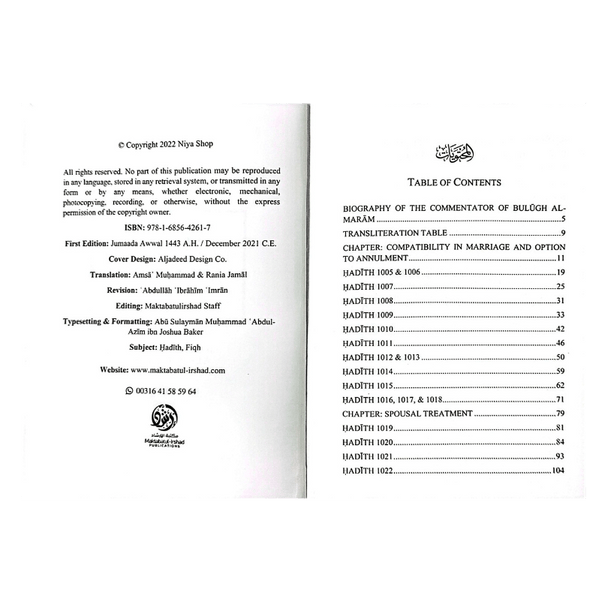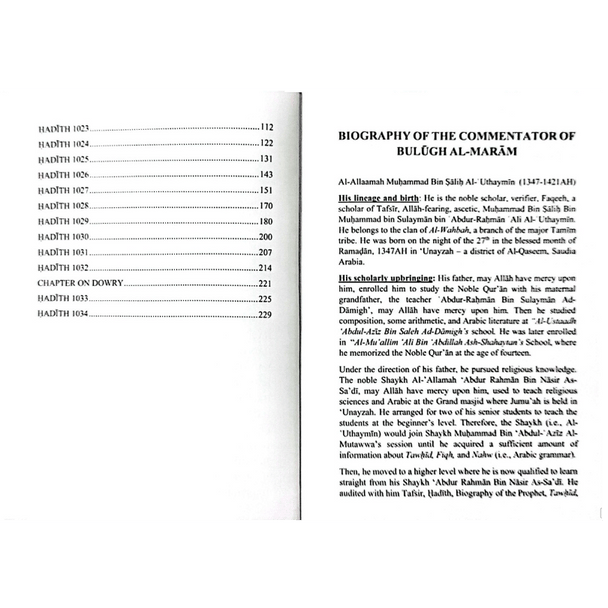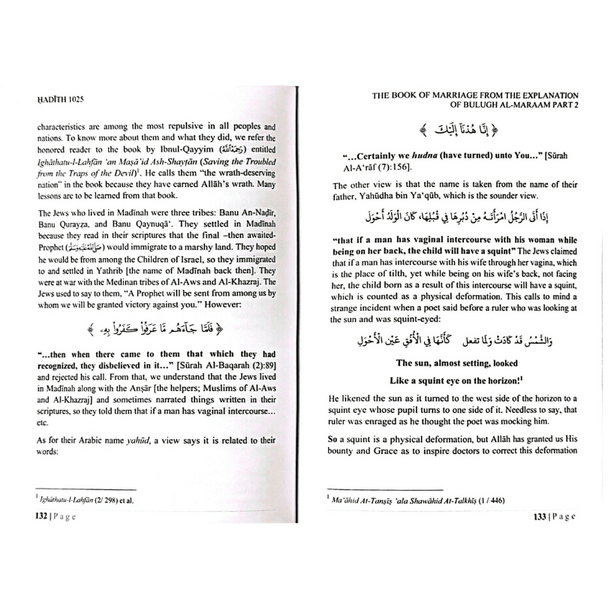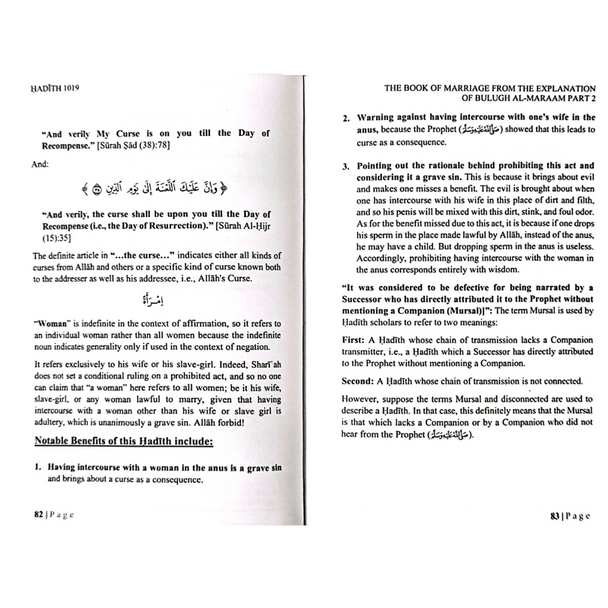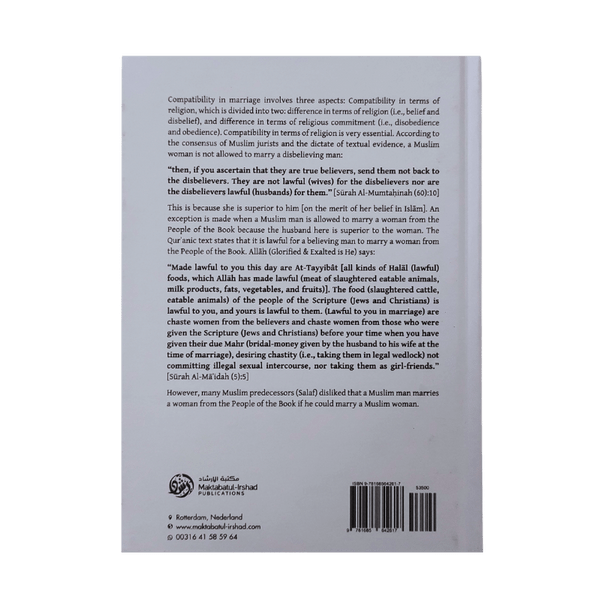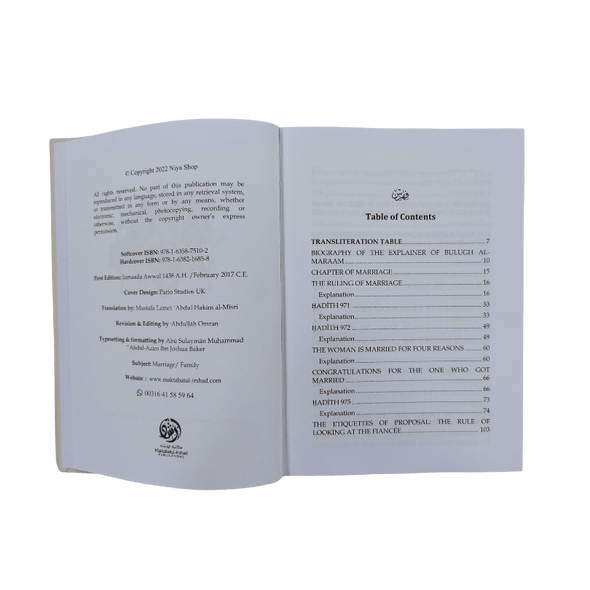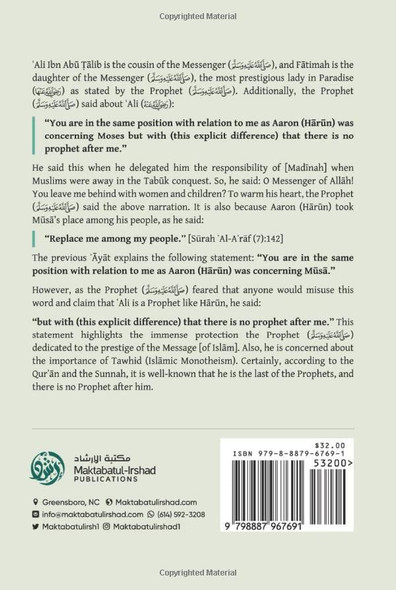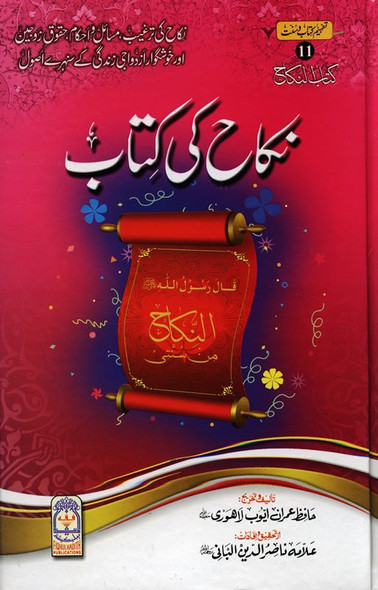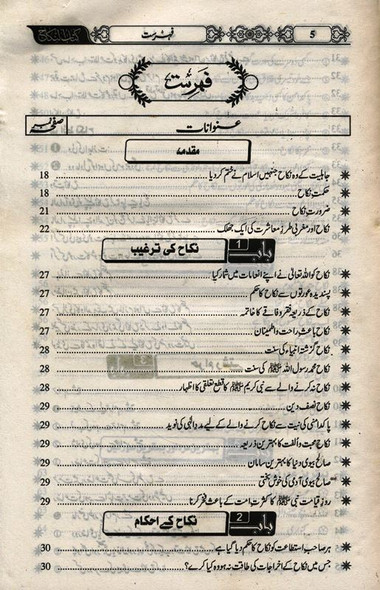Description
Compatibility in marriage involves three aspects:
Compatibility in terms of religion, which is divided into two: difference in terms of religion (i.e., belief and disbelief), and difference in terms of religious commitment (i.e., disobedience and obedience). Compatibility in terms of religion is very essential. According to the consensus of Muslim jurists and the dictate of textual evidence, a Muslim woman is not allowed to marry a disbelieving man:
"then, if you ascertain that they are true believers, send them not back to the disbelievers. They are not lawful (wives) for the disbelievers nor are the disbelievers lawful (husbands) for them." [Sürah Al-Mumtahinah (60):10]
This is because she is superior to him [on the merit of her belief in Islām). An exception is made when a Muslim man is allowed to marry a woman from the People of the Book because the husband here is superior to the woman.
The Qur'anic text states that it is lawful for a believing man to marry a woman from the People of the Book. Allah (Glorified & Exalted is He) says:
"Made lawful to you this day are At-Tayyibât [all kinds of Halal (lawful) foods, which Allah has made lawful (meat of slaughtered eatable animals, milk products, fats, vegetables, and fruits)].
The food (slaughtered cattle, eatable animals) of the people of the Scripture (Jews and Christians) is lawful to you, and yours is lawful to them.
(Lawful to you in marriage) are chaste women from the believers and chaste women from those who were given the Scripture (Jews and Christians) before your time
when you have given their due Mahr (bridal-money given by the husband to his wife at the time of marriage), desiring chastity (i.e., taking them in legal wedlock) not committing illegal sexual intercourse, nor taking them as girl-friends." [Sürah Al-Ma'idah (5):5]
However, many Muslim predecessors (Salaf) disliked that a Muslim man marries a woman from the People of the Book if he could marry a Muslim woman.


